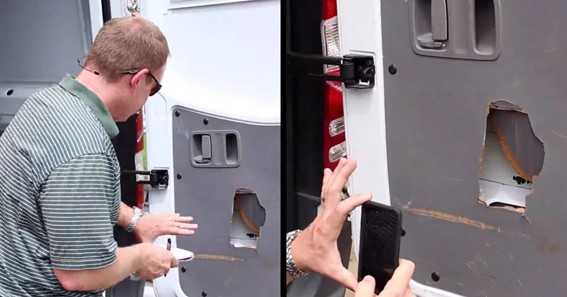Good drivers know that conducting a thorough inspection prior to every drive is a habit critical to safety on the road. It’s certain that your checklist includes the obvious basics, such as tire pressures and brake fluid, but here are seven tasks you might be skipping when getting your big rig ready.
- Chock the wheels
If you aren’t chocking your wheels before you start your pre-drive inspection, your vehicle could roll and cause serious damage or injury.
- Clean up.
Is a tidy and clean truck a safety issue? Absolutely. A mess inside is distracting and might pose a health hazard. (Sick drivers aren’t safe drivers.) A mess outside could inhibit your visibility, damage your engine, or expose your rig to risks of corrosion or rust. Clean up your truck inside and out before hitting the road.
- Brake pads
Worn brake pads will damage your braking system, leading to a far more expensive repair and potentially a serious accident.
- Emergency supplies
Every truck driver needs a well-stocked emergency supply kit that includes first aid supplies, light, heat, water, food, a good map, backup communication, reflectors, and basic tools needed for simple repairs. But here’s the thing: it’s common for stuff in an emergency kit to get old. Batteries in flashlights die. Meds expire. Food spoils. Reflectors stop working. Your kit won’t do you any good if it’s out of date. Check your emergency kit regularly to make sure it has what you need to help you in an emergency.
Truck drivers may encounter medical emergencies that may arise during their travels and knowing how to provide basic first aid can be a life-saving skill. Anyone can get Calgary CPR Courses or first aid training and certification online.
- Seatbelts
Just give your seatbelts a quick look every now and again to make sure there aren’t any issues.
- Wheel lugs
Lug nuts loosen or corrode over time and, if that happens, you’re at risk for serious problems. Check those wheel lug nuts, replace any that are corroded and tighten any that are loose.
- Paperwork
Keeping track of documentation is a significant responsibility of truck drivers. You’ll need your CDL, vehicle registration, insurance info, your logbook, and any paperwork relating to the freight you’re hauling. Double and triple-check all this to make sure you’ve got everything you need in a spot where you can find it when you need it.
If Things Don’t Check Out
If your vehicle inspections are consistently revealing problems, it might be time to look for used Freightliner trucks for sale in your area. A new-to-you semi-truck will help you get past the safety issues of your old rig and keep you driving down the road.






